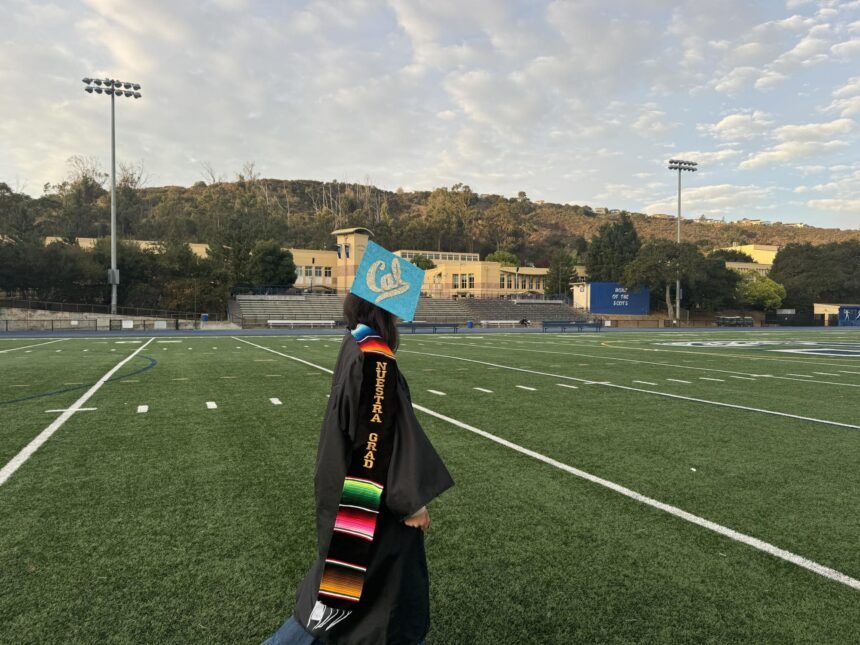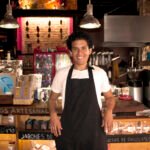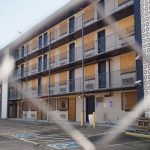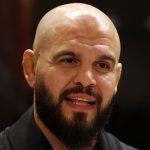The barrier
“No dogs, no blacks, no Mexicans.”
As an immigrant from Guadalajara, Mexico, looking upon this restaurant sign in El Paso, Texas, a young Ruben Smith began to understand that the promised land of the free did not apply to Latinos.
Messages like the one Smith encountered were not foreign to the Spanish-speaking Latinos eager to start a new life in a world of possibilities.
Ethnic barriers limit the job possibilities for Latino and Hispanic Americans even today.
According to the U.S. Bureau of Labor Statistics, Latinos had one of the highest labor employment rates but one of the smallest percentage of white-collar jobs within the U.S., making up the majority of construction, transportation, and agriculture jobs.
The limiting factor to this analysis is the opportunity for Latinos to obtain an education so that they have the resources to achieve these jobs.
Smith was determined to change this.
Starting from scratch
From a young age, Smith’s father motivated him to make an impact as a Latino and make room for the future Latinos who were to come.
As a young Mexican immigrant, Smith had no example of what this looked like and how to be the change his community needed. But this didn’t stop him from seeking opportunities to make a difference.
As a high school and then college student, Smith was self-driven in prioritizing his education and seeking opportunities to put himself in leadership positions.
Determined to put himself out there, Smith soon found himself in Washington, D.C.
“When I was 19 years old, I drove the mayor of Los Angeles (L.A.) into the White House while working for the city of L.A. lobbyist in Washington D.C., and was like, ‘I was born in Guadalajara. What am I doing here?’” Smith said.
Being in Washington, D.C., surrounded by people who didn’t look like him or share his culture didn’t stop Smith from pursuing his goals. Instead, it pushed him to work even harder.
Initially, the environment of Washington, D.C., convinced Smith that, as a politician, he could make a real impact. This dream was short-lived.
“The experience of being in the White House and seeing that I didn’t have access to decision-making motivated me to be a lawyer,” Smith said.
This motivation led Smith to Yale Law School, where he commenced his journey to become a lawyer. Surrounded by primarily white colleagues throughout his education and into the beginning of his career, Smith quickly realized the urgency to expand diversity within the law field.
[/infographic]
According to the American Bar Association, as of 2020, “5% of all lawyers are Hispanic…although the U.S. population is 18.5% Hispanic.” This divide was even more significant when Smith chose to become a lawyer, which is why he knew that starting his firm was more important than himself; it meant creating a space for Latinos in law.
“We created a Latino law firm, and we wanted to create a firm that was well thought of and respected but happened to be Latino,” Smith said.
Despite Smith’s education and expertise, his firm struggled to compete against other white-owned firms.
“The idea was to be part of the community and show that we were the best lawyers, and we happened to be Latino. In that process, we could see a lot of discrimination,” Smith said.
Combatting discrimination
In a small pocket of a prominent Chicago city, Miriam Rivera’s hometown was full of Latino life and community. Rivera’s father influenced her upbringing, centralized around her Puerto Rican culture.
The question of her identity tugged at Rivera as she tried to discover who she was. Rivera’s mom frequently wanted to assimilate into American culture, but her dad instilled in her a commitment to honor her heritage.
“My dad wanted to retain more of our culture, so I have always tried to keep the spirit of Puerto Rican culture alive,” Rivera said.
Even within such a culturally rich community, Rivera found herself singled out from a young age because of her language skills and the color of her skin.
When trying to help translate for a student coming from Mexico, Rivera’s teacher admonished her for using her native tongue within her Kindergarten classroom.
“The teacher made me stand up and shamed me in front of everyone in the class and said, ‘You’ll never speak Spanish again in this classroom,’” Rivera said.
Decades later, Rivera still vividly recalls this experience as humiliating.
“I experienced adult ignorance and bias throughout my childhood that made me feel bad at the time because I felt like I was treated as if I had misbehaved,” Rivera said.
This made it hard for Rivera to find her place as a Puerto Rican within her educational community, restricted to assimilating into the white-dominant domain.
“That’s when I started learning about bias towards Latinos because I was treated so poorly for trying to do something kind,” Rivera said.
Driven to succeed
Although Smith and Rivera’s experiences date back to a different generation, the challenges and influences of Latino identity remain fundamental.
As a first-generation American with Guatemalan and Mexican heritage, Yahany Francisco’s childhood experiences set in motion a realization that her upbringing differed drastically from that of her peers.
“I grew up in a predominantly Latino community, so as a child, I had certain traditions that I grew up thinking were normal, but I came to realize that my concept of normal was skewed,” Francisco said.
Upon beginning a middle school engineering academy followed by a dual enrollment high school, Francisco realized that this deviation would place a social barrier for her as she struggled to fit in. Francisco’s language barrier was the most impactful.
“My parents didn’t know how to speak English, so they didn’t teach me. Going into school, I didn’t practice English, which was a huge social barrier for me because I wasn’t able to interact socially with most of the kids at school,” Francisco said.
Feeling singled out by her heritage in a diverse student body, Francisco recalls a sense of shame and embarrassment she held over herself because of her distinctive culture.
This feeling didn’t change until the second semester of freshman year of high school when Francisco’s friends started the Latin/Hispanic Heritage Club, changing how Francisco viewed her culture forever.
“It was finding that community of people and knowing that we were all empowering each other that got me where I am now,” Francisco said. “I acknowledge fully that diversity is necessary in every community because you can bring a unique perspective.”
Francisco’s Hispanic/Latino community has grown stronger at the University of California Berkeley.
“I’ve met so many people that I’ve been able to automatically understand because we lived through the same childhood,” Francisco said.
Adopting her culture and sharing its beauty was the first step of many Francisco would take to embrace her culture as a strength rather than a weakness.
“I wish I had someone to look up to when I was little. It’s super important to continue uplifting the younger generation,” Francisco said.
Martina Becerri is part of this younger generation as a junior in high school living in Pennsylvania. Throughout her life, Becerri has found ways to keep her culture alive, surrounded by a predominantly white community.
As a daughter of hardworking immigrant parents from Mexico, Latino identity has been integral to her values.
“During my childhood, I was surrounded by a lot of other Hispanic people, so it gave me a chance to be proud of my culture and share it with other Latinos,” Becerri said. “Now, I’m surrounded by non-Latinos, and in some classes, I’m the only Latina.”
Becerri has learned to embrace this fact and has used it as an opportunity to share her Latina culture with pride, but reaching this point did not come without its challenges.
“I was bullied throughout elementary school because I had a really bad accent. That was a hindrance because it tested how proud I was about my ancestry and culture,” Becerri said.
When Becerri and Francisco feel like giving up, they think of the hard work and dedication of their parents, grandparents, and the Latino community that has gotten students to where they are today.
“The Hispanic community has such a beautiful work ethic and goal-oriented mindset that it honestly inspired me so much. It’s what keeps me going,” Francisco said.
From Becerri’s perspective, a strong work ethic defines Latino culture. The U.S. Latino GDP reflects this as it reached 3.7 trillion in 2022, being ranked the 5th largest economy in the world, a testament to each hardworking Latino individual in the U.S.
“Latinos work really hard; it’s within us that we are hard workers, and we don’t give up even when challenges come,” Becerri said.
Regardless of their childhood, upbringing, heritage, or educational background, Smith, Rivera, Francisco, and Becerri agree that they wouldn’t be where they are today without the encouragement and support of those who wanted to see them succeed.
Whether it was Rivera’s mother pushing her to get an education, Smith’s stepfather instilling him the importance of uplifting his community, Francisco’s parents pushing her to succeed, or Becerri’s family reminding her each day to work hard, each Latino parent and figure paved the pathway so that these future generations could show the intelligence and strength of the diverse Latino community.
A future of diversity
Thinking back to the sign Smith saw all those decades ago in a small town in El Paso, Texas, he realized that all the discrimination he faced motivated him to work even harder to prove people wrong.
In Hawaiian culture, Ulu means to grow and spread. Rivera harnessed this definition in her efforts to develop the role of minority groups in venture capital and business.
“I decided to start Ulu, in part, because I did think that people need to see examples of others doing things before it becomes real for them so that they know it can be them too,” Rivera said.
Since its founding, Rivera has prioritized funding increasingly diverse groups of people, especially African American and Latino entrepreneurs.
This attention to diversity within the field of business and within Smith’s field of law is critical to amplifying distinct perspectives, which is why Smith and Rivera are so dedicated to young students and entrepreneurs.
“What’s next for me is providing more opportunities for Latino students,” Smith said.
Thirty years ago, Smith founded the Hispanic Education Endowment Fund, a scholarship fund for Latino students. Over the last three decades, the fund has raised over $5 million and has an endowment of close to $5 million, all of which has gone to award scholarships.
“I got to where I am because many people helped me along the way. I didn’t get there by myself,” Smith said. “What I do is I try to give back, to help open doors for students to get to a place where they can make a difference as well.”
The impact of Smith’s work is evident through his dedication to broadening college education for young Latino students.
“At the University of California Irvine (UCI), we created the Latino Alliance, which is made up of Latinos in the community who are there to help students at UCI and create more opportunities,” Smith said.
The results of this program are transformative. UC Irvine’s admission rate is 24.1% Latino, the second highest percentage per ethnic group, with a significant focus on first-generation students.
“That’s the other piece, which is opening opportunities for people to become educated, make a big difference, and help their families like I was able to do in my situation,” Smith said.
Their potential in the U.S. market has engineered Rivera’s goal to help fund these diverse groups. By funding them, she hopes these companies will reach the broader diverse U.S. markets that comprise over 40% of the population rather than the historical target market that no longer represents what the U.S. and the wider world have to offer.
“That has been the motivation for Ulu and the excitement of seeing us serve communities globally,” Rivera said.
This impact has always been part of Smith’s and Rivera’s goals. Their careers may be in law and business, but their true passion is finding ways to use their resources to help their community.
Smith’s experience coming from a low-income Mexican family and Rivera’s journey as an immigrant Puerto Rican living in Chicago is not the first and won’t be the last. However, their journeys were consistently characterized by a drive to dream big and fulfill their passions.
“This is the America I belong to, where people come from throughout the world to be here and take advantage of the opportunity to contribute to this country,“ Rivera said.











